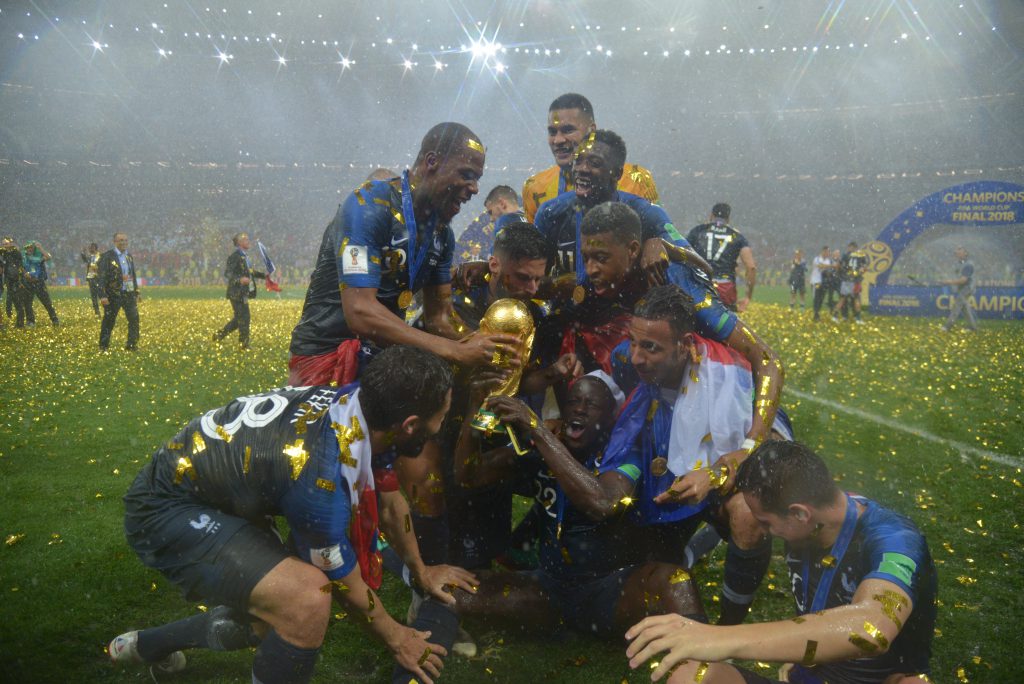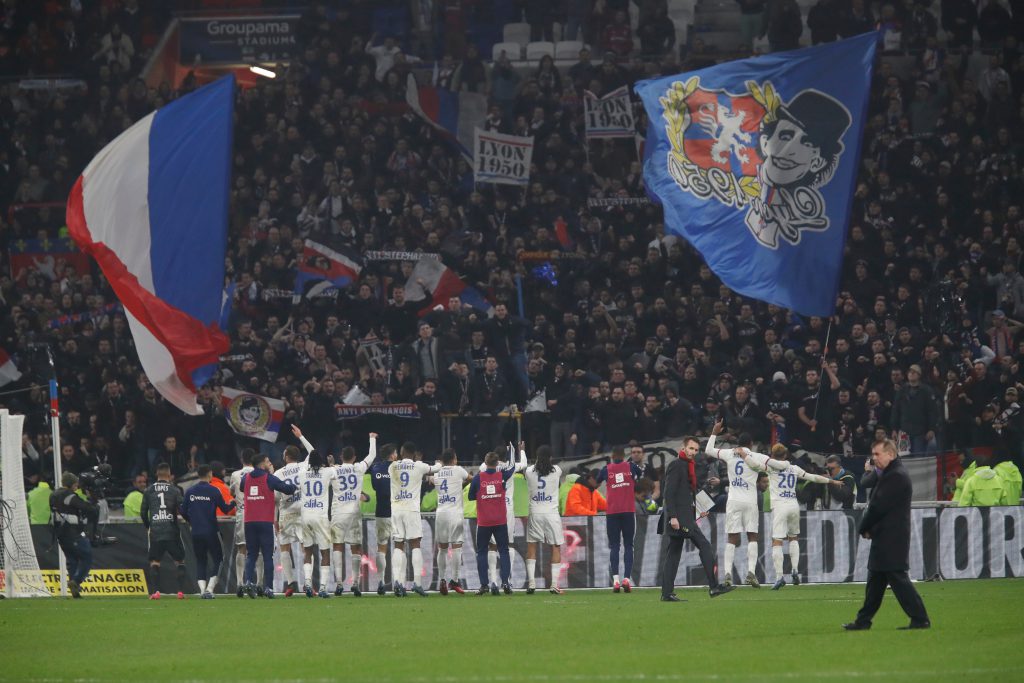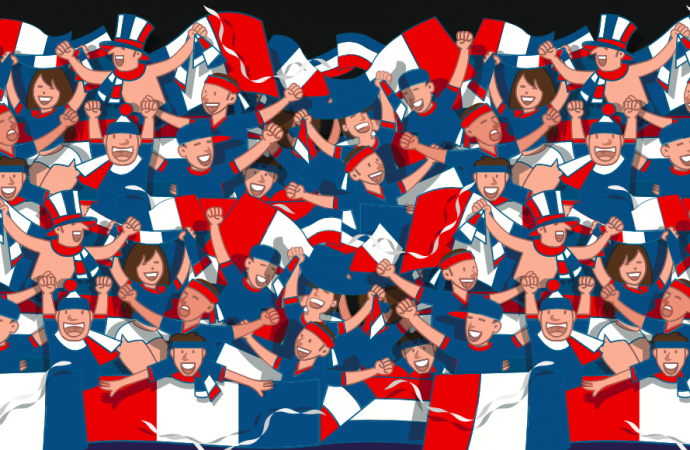Two years after the national team tasted victory at the FIFA World Cup, a number of leading actors are aiming to position professional and amateur football as a catalyst for France’s low-carbon transition
France has had a complicated recent history with environmental initiatives. While the nation will always be associated with the landmark Paris Climate Change Agreement – which saw the majority of the world’s sovereign states commit to concrete action against climate change on French soil – the yellow vest protest movement highlighted the conflict between necessary environmental measures taken by the government and their social acceptability, such as the increase in diesel prices.
That being said, a Pew Research study from late-2018 found that the French public were the third most concerned about climate change (more than 80% labelled it a ‘major threat’), although the Climate Change Performance Index puts France 18th, behind several European counterparts, including Sweden, Denmark, the UK, Lithuania, Finland, Norway, Luxembourg, Malta, Latvia, Switzerland, and Ukraine.
A collective of six sustainability specialists has identified the country’s national sport as a way to make further inroads in the public’s consciousness. In mid-May, Football Ecologie France fired the starting gun on a nationwide consultation to capture the mood around football and the environment.
The ambition: to raise awareness about environmental issues in football and society, and to secure the commitment from professional and amateur football clubs, related institutions, and local authorities to be part of the ongoing solution to climate change.
Two years after ‘Les Bleus’ lifted the FIFA World Cup in Moscow to achieve the undisputed status of world champions in football, can the domestic game position itself as sustainability leaders in sport?
Mobilise members
Firstly, it’s important to understand how important football is to French culture. According to Football Ecologie France, more than two million people are members of the 15,000 amateur clubs dotted all over the country. In the professional leagues – Ligue 1 and Ligue 2 – there are 46 clubs.
The nonprofit was established in July 2019 to mobilise these members and clubs towards climate action. As well as launching a consultation to assess the lay of the land, Football Ecologie France is preparing materials that will help clubs, players and local authorities make better decisions for the environment.
According to Charlotte Braleret, a carbon assessment expert and co-founder, sport (and specifically football) “can be a leader in the ecological transition”.

Before any of that work starts, the consultation will help Braleret, her six co-founders (president Antoine Miche, Severin Fischer, Bernard Goudard, Jérôme Lachaze, and Claire Tutenuit) and 60 volunteers identify the ecological issues affecting clubs – and their own environmental impacts – before developing a long-term strategy for progress.
Volunteers can be found in six main hubs: Paris, Lyon, Marseille, Toulouse, Bordeaux and Strasbourg. As well as being cities and regions with strong football heritages, each of the locations face unique climate change impacts.
Paris, which under the stewardship of Mayor Anne Hidalgo has become a model for urban climate policy, faces environmental issues such as extreme heat and flooding. Bordeaux’s wine industry is under extreme pressure from the increasing temperatures, droughts and erratic weather patterns. Policy makers in Marseille will probably be most concerned about the rising sea level.
It’s these threats, and their impact on football, that Braleret and her colleagues highlight when trying to get buy-in from amateur clubs who, more often than not, have scarcely thought about the negative impact that changing climate is having on football. Others have to be convinced that the topic is worth their time and resources.
“It’s not easy in the football industry because, when it comes to CSR issues, they are usually focused on the social element,” Braleret tells The Sustainability Report. “Ecological issues are something they’re not really familiar with, which is one of the main reasons we decided to start the organisation.”
Football Ecologie France is planning to offer support to clubs in the shape of self-assessment tools and advice around player transportation, waste management and procurement. Fortunately for the organisation, local authorities tend to own most of the amateur (and even professional) venues in France and, as a general rule, they are usually well-versed in sustainability issues and low-carbon solutions for their own localities.
The nonprofit’s ambitions are also, indirectly, being supported by France’s central government. To accelerate French sport’s transition to the low-carbon economy, the nation’s sports ministry produced a charter of 15 ‘environmentally responsible commitments’ sports events and facilities can commit to.
Commitments range from sustainable food to active mobility, and from sustainable procurement to reducing excessive waste, and Football Ecologie France has modelled a diagnostic tool on the charter to help non-professional clubs.
Environmental responsibility
Environment has been a priority for France’s ministry of sport for more than 10 years now, with a dedicated sport and environment department that oversees the evolution of the charter and other sport and sustainability initiatives.
The charter was initially conceptualised in 2017 at the behest of sports events, such as Roland Garros, wanting to challenge themselves to become better environmental stewards. Since then, 86 sports events and facility owners have adopted the charter, with football organisations making up a large proportion of those committed.
As well as the Ligue de Football Professionnel (which oversees the two main leagues in France), Olympique de Marseille, FC Girondins de Bordeaux, Olympique Lyonnais, and LOSC Lille have become signatories, with the French Football Federation making the pledge earlier this year at Global Sports Week in Paris.
In partnership with WWF France, the sports ministry developed the charter with concrete commitments that signatories must adhere to. For example, events must prove that 50% of the food they serve comes from sustainable sources. A minimum of 80% of the journeys made to events must be made using active mobility, public transport and car sharing.
Amandine Singla, the head of the ministry’s sport ecology department, explains that a second, “more demanding” version of the charter is being devised, with reporting compulsory and, in some instances, progress overseen by an external evaluator.
“We will have high ambitions regarding waste, food, transport and social commitments,” she says. “You have to keep in mind that much of this is linked to Paris 2024, and the Paris team has very high ambitions regarding sustainability.”
The French government is using all of its resources to make the link between the environment and a healthy sports industry. Convincing some sports organisations can be challenging, Singla acknowledges, and reveals that the ministry’s partnership with WWF France will grow stronger with the development of a piece of research that will aim to convert the unconvinced.
“We’re studying the vulnerability of sport if there’s a 2°c, 3°c or 4°c increase in temperature,” she adds. “What we want to do is collect some data in order to raise awareness in the sports industry and approach different stakeholders.”
And while the whole sports business should be concerned about the threat from climate change, Singla agrees that football is an extremely significant corner of the industry to engage because of its popularity and reach.
Nurture
Margot Chave is at the forefront of this movement as the Ligue de Football Professionnel’s corporate social responsibility executive. She spends her time travelling around the country engaging France’s professional teams in social and environmental initiatives.
Since joining the league two-and-a-half years ago, Chave has helped to nurture a relationship with WWF France in which the organisations have collaborated on producing practical handbooks for the clubs focusing on waste, biodiversity and sustainable food.
The partnership also led to a number of clubs making commitments around biodiversity. Corsica-based club AC Ajaccio established a reforestation project in the heart of the city, and was one of several clubs, including Montpellier HSC, Olympique Marseille, FC Girondins de Bordeaux, Olympique Lyonnais, Dijon, Valenciennes FC, Stade de Reims, LOSC Lille and Amiens to partner with Teragir, the French office of the Foundation for Environmental Education in Europe, to offer youth players education programmes related to environmental awareness.

Many of the clubs have their own environmental initiatives. Toulouse FC, which looks likely to be acquired by US investment company RedBird, has had a CSR policy since the early 2000s. Paris Saint-Germain – France’s most dominant club in recent years – is building a new training ground with the aim of preserving most of the area’s biodiversity.
Earlier this year, LOSC Lille joined Real Betis and Forest Green Rovers to become the first French football club to join the UNFCCC’s Climate Neutral Now initiative, which asks signatories to measure, reduce and offset their greenhouse gas emissions.
But Chave has been working on a broader sustainability strategy for the league to make clubs’ activities more coherent and impactful. The first stage, she says, is to take into account what already exists. Then it’s about identifying the clubs’ (and the league’s) biggest areas of impact. Finally, Chave will validate the strategy with individual clubs to make sure they’re on the same page.
And, according to Chave, the progress made thus far wouldn’t have been possible without the leadership of Nathalie Boy de la Tour, the president of the Ligue de Football Professionnel, and Isabelle Autissier, the president of WWF France.
“The president was nominated in November 2016 and it was a priority for her to start this work on sustainability,” Chave tells The Sustainability Report. “You have two presidents – two incredible women – who are very invested.
“The WWF wanted to reach new people and we needed legitimate help and expertise to make the handbooks. It’s a win-win and we’ve created a wonderful platform to send out this message.”
Long-term consequences
Leadership is at the heart of the sustainability work of one of France’s more progressive clubs. Olympique Lyonnais, based in the cosmopolitan and artistic city of Lyon, has made environmental conservation a key priority since it moved into its Groupama Stadium in 2016.
The focus on sustainability starts at the top with the club’s owner, Jean-Michel Aulas, who is commonly associated with hard-line negotiating skills that have helped the club nurture young talent before selling them to elite European football clubs for large transfer fees.
This perception of Aulas is a one-dimensional view, says Maëlle Trarieux, who oversees the Olympique Lyonnais Foundation and, by extension, all of its sustainability work.
“He takes into account the wellbeing of people and the planet and, if he believes in what we do, he opens doors, gives us the money to establish the projects, and accepts that, sometimes, environmental issues can contrast with economic ones,” Trarieux explains.
“He always thinks about the long-term consequences. For example, I am an environmental engineer and I think I am the only one working for a football club in France. I was hired because he knew the environment would be important for the club and it was good to have someone internally with a good knowledge of the subject.”
While Olympique Lyonnais’ sustainability work can be traced back to 2010, when the club decided to calculate the CO2 footprint of the new stadium (which was still in the design phase), that has evolved since the venue was built.
Because of the stadium’s privately-owned status (its previous Stade de Gerland home was owned by the local authority), Trarieux and her colleagues have much more autonomy when it comes to dealing with energy, water, waste and other operations.
During the break enforced by the Covid-19 pandemic, the club has managed to put a structure in place to transition players away from disposable plastic bottles to reusable ones. This eradication of single-use plastic will filter down to the matchday fans after Olympique Lyonnais signed a “big contract” with conservation organisation Veolia. The pair will establish a number of ‘water bars’ around the stadium concourses so that supporters can hydrate without purchasing bottles.
Since moving into its new home, the club has partnered with the local food bank to donate five tonnes of unsold food every year. All electricity purchased is derived from renewable energy sources, and the club has developed a car share app to decrease fan travel emissions.
The area found directly outside the stadium has been reserved for ambitious biodiversity projects. Six bee hives have been placed in this area, which produce 100 kilograms of honey every year. Local schoolchildren are invited to the plot for free workshops around the hives and in a new 500sq metre pedagogical garden, built with permaculture principles.
Trarieux’s next big project is to oversee a much wider carbon footprint analysis that takes into account internal operations, team travel and the products the club is selling in terms of food and merchandise.
“This will be a complete carbon footprint analysis based on real data,” she says. “Our first big step is to understand clearly and completely what our impact is and the best way to change things.
“We are on the stock exchange, so it’s better to have environmental engagement when talking to investors, but we’re currently focused on mitigating the risks than searching for the business opportunities. Now we’re investing in a new arena that will host concerts and Euroleague basketball, and it’s better to negotiate with local authorities taking environmental issues into account.”
Whether French football can position itself as a leading light in the nation’s (and sport’s) transition to a low-carbon future remains to be seen. But with the national government, professional league, high-profile clubs and amateur teams all shooting at the same target, an interesting model is being developed that other sports and countries may be watching with interest.
Get more content like this to your inbox, every week here.










Leave a Comment
Your email address will not be published. Required fields are marked with *